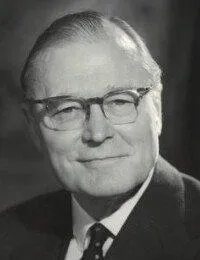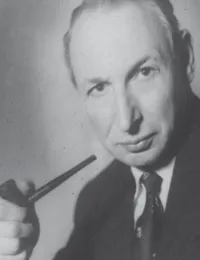Cancer research at King’s and its partner hospitals can be traced back more than 100 years to a time when clinical pathology was barely a recognized discipline.
Since then, these institutions have been the training ground for several prominent researchers including Hedley Atkins (1905-1983) and Peter Gorer (1907-1961). The specific aims of cancer research at King’s today are as varied as cancer itself, and range from the psychosocial implications of a cancer diagnosis to the protein-protein interactions that take place between individual cancer cells. All the research has the common aim of improving clinical outcomes for people with cancer, and many studies build on fundamentals laid down by their predecessors.

Thomas Hodgkin (1798 - 1866)
Thomas Hodgkin (1798-1866) was the first contributor from King’s with his eponymous description of enlargement of the internal lymph nodes and spleen. Samuel Wilks (1824-1911) described the same condition some years later, but it was he who named it after Hodgkin. He also made the first description of lymphatic leukaemia.
Leonard Dudgeon (1876-1938)
Leonard Dudgeon (1876-1938) was one of the first people to recognise the close relationship between pathology and clinical medicine. He qualified as a physician at St Thomas’ Hospital in 1901 and later became head of the Louis Jenner Clinical Laboratory where he studied the pathology of malignant cells. During his 35-year career at St Thomas’, Dudgeon pioneered cytology by developing methods for rapidly diagnosing tumours using smears of body fluids and tumours. He was among the first to diagnose lung cancer from single malignant cells.

Hedley Atkins (1905-1983)
Like Dudgeon, Hedley Atkins, a pioneering breast cancer researcher, was loyal to the hospital that trained him and spent most of his working life at Guy’s. He graduated in 1932 and became the first professor of surgery at Guy’s in 1961. He pioneered controlled clinical trials to test treatments for breast cancer including those that compared the benefits of local removal of the tumour (lumpectomy) with radical breast surgery (mastectomy). He was one of the first to realise that the complex nature of breast disease meant that outcomes could be improved if surgery was accompanied by other treatments such as radiotherapy and chemotherapy, and to recognize the influence of hormones on prognosis. His achievements in the study of breast pathology are commemorated to this day in the Hedley Atkins Breast Unit and Breast Pathology Tissue Bank.

Professor Peter Gorer (1907-1961)
Another graduate of Guy’s Hospital, Professor Peter Gorer (1907-1961), became a key contributor to the study of organ and tissue graft rejection and tumour immunology. He developed antibodies in inbred mice that for the first time distinguished normal and malignant lymphoid cells serologically. But it was his studies to define the antigenic composition of tumours and what rendered them transplantable between strains of mice that made a major contribution to our understanding of one of the fundamentals of immunology – histocompatability antigens.
Michael Hutt (1922-2000)
In the 1960s Michael Hutt (1922-2000), Professor of Geographical Pathology at St Thomas’, began work on how environmental factors influence cancer incidence. He worked with Denis Burkitt in East Africa studying the epidemiology and environmental risk factors for Burkitt’s lymphoma and Kaposi’s sarcoma. He also established one of the first cancer registers. St Thomas’ alumnus Sir Richard Doll (1912-2005) is the most famous figure in the field of environmental risk of cancer. His work with Austin Bradford Hill linked smoking and lung cancer; an association first made public in 1951. He was awarded the UN prize for outstanding research into the causes and control of cancer.